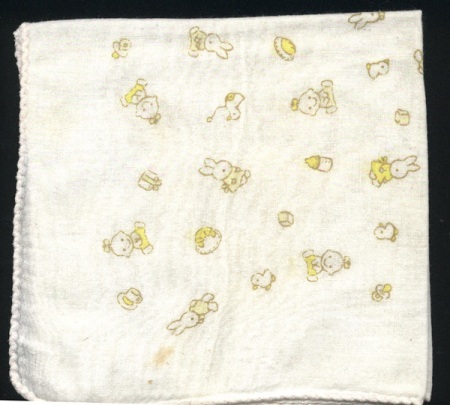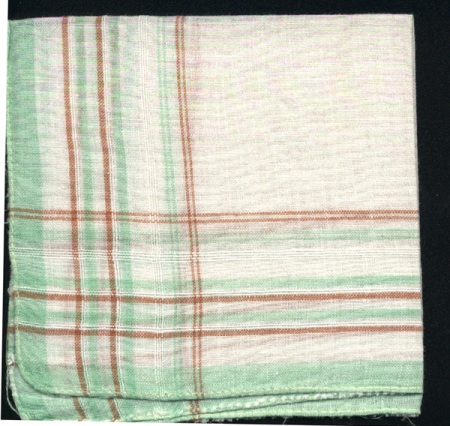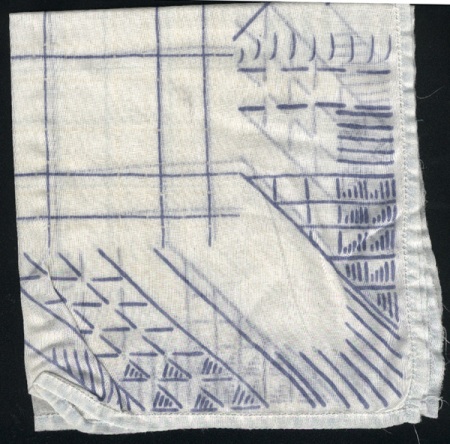I am responding to former Councillor Sandy Macdougall’s reflections on the Salvation Army’s current usefulness in the Maple Ridge. I’m sure we have many common concerns about our community and the welfare of its citizens with our friends and neighbours. We want safe, clean streets. We want to care for our needy neighbours and to protect our seniors. We want a healthy population and we expect that if we need to go to the hospital to get treatment it will be available.
We don’t want homelessness and we don’t want crime. We care about whether people have food in their bellies and a warm dry place to sleep at night.
I never used to worry much about how we did this. It was up to the politicians because we paid our taxes. It was a service our parents fought for to make Canada a more humane country. We have strong social ideals to take care of this sick, the elderly and those with disabilities. That is what a humane Canadian society does, or we would hope so.
But our dreams of a good society are slipping seriously and I am very concerned about it.
Mr. Macdougall’s position is that we need to run the Salvation Army out of town because an unsightly and uncontrolled element of society hangs about the Caring Place doing things no respectable citizen would do. Move the facility out of town, out of sight, out of mind.
In discussing this with a friend, he said, “It’s like saying, let’s get rid of the emergency ward at the hospital, then we won’t have any emergencies. Or, let’s get rid of the police and then we won’t have any crime.”
Normally, I wouldn’t go public with my opinions. But in the last few years, I’ve found that conducting one’s life in this society has become much more precarious. It didn’t affect me until I saw some of my friends teetering on the slippery slope of welfare, homelessness and destitution. It hits home when the people we are talking about are people you know personally. Hardworking people from the middle and upper middle – former teachers, psychologists, information technologists, health care technicians, to name a few whom I will tell you about.
Don’t think that these are bad people who should have saved for their retirement and it’s their own fault. Within my own circle of acquaintance, there was a man with a serious heart condition who lived in his van summer and winter, and could still work occasionally in his computer repair and support business to eke out his meager income. He had been a high earning Information Technologist with a wife and two kids. When the marriage split, he was still supporting his family. It didn’t leave him with much. When he had a heart attack, he was no longer earning,then his savings melted away. Few knew of his circumstances as he appeared like a gentleman when he attended all sorts of free events around town so that he could still feel somewhat normal and intelligent while he kept himself warm. Days were spent in the library. While he was mobile, he could visit Leisure centres for a nominal fee and get a shower and keep clean.
Alice, a close friend, has moved three times in the last three years as her income stays the same but her rent goes up. She has no savings after caring for her husband and his kids during a battle with cancer. She spent her life working full time at a decent job, giving to the community and caring for lost youths and fighting for social justice. She was honoured by Oprah for this. She still volunteers and is an active member of the community.
But this same person was refused treatment in our medical system for what she thought was follow up to elective surgery she hadn’t been able to get in Canada. BC Med wouldn’t cover the treatment she needed and she had to go to the States to get a baric scan. It turned out her problem wasn’t what she thought; it was nothing to do with it. It was far more serious. The delay almost cost her life. What she had to pay to go for the US investigative treatment she had to borrow. She doesn’t have enough income to provide for this herself. Each end of the month, she subsists on cereal.
Another friend is on a disability pension, has been for ten years. A psychologist by profession, his disabling illness has reduced him to a life of subsistence. Two heart attacks followed. He’s completely unable to earn his living. But he lives in dignity, studying and researching each day. Like my first example, he makes use of the library for a place to go for warmth and a semblance of normalcy. Up until last year, he spent time volunteering as much as he could at various charitable places around town. He lives within his meager income, proudly independent, asking nothing of anyone. He’s had to stand in line in the food bank though his energy has completely waned with his medical illness. This spring, one month after his last open heart surgery, his landlord decided to renovate. He was ordered to vacate. It was impossible to find something he could afford and he became homeless for two months. Imagine that, readers. How would you cope? Now, how would you cope, one month after open heart surger? It was only with strong advocacy from a friend that he finally found a stable roof over his head. Otherwise he would have died. But you wouldn’t have heard about it. We don’t report homeless people’s deaths.
My close friend whom I shall call Alice divorced three years ago from a destructive marriage. She was left with a small bank account for emergencies. As a senior, her income is low and is boosted by SAFER which allows her a decent small apartment, but the rent is going up and she won’t be able to afford it much longer. Her income is not going up. She’s not there yet, but she is looking at the edge of the slippery slope and is fearful of the days ahead. There are pitiful few low-cost housing places in Maple Ridge or in the Lower Mainland, for that matter.
Alice was a school teacher for twenty years of her life until she fell ill with cancer and was not able to work after that. She has been head of several volunteer committees in town. She still volunteers regularly. She is a thoughtful and important member of the community, living within subsistence means that you will not notice because she is proud. Thank goodness for thrift shops like the Salvation Army and several other charities run. Normal stores are, in the main, beyond her means.
The story of Maria is equally frightening. Maria is an immigrant and writer and deeply religious. She came with her family twenty years ago with husband and two boys who just recently reached majority. It was an abusive marriage. Now that the boys have left home, she has been able to escape, but she has no income but welfare and she sleeps at night at the Salvation Army Caring Place. There is nothing permanent about it. She bought a cell phone and she tries to get any work she can get. It’s mostly cleaning but she is new and has very few people who will trust her since she’s not got a “proper” place to live.
I’m telling you these things because they are just a few of the people whose stories I know. There are so many more in our society, in your acquaintance, who are proudly carrying on as best they can in fear of desolation, trying to keep the shreds of their dignity.
I can tell you that in trying to help my friends I found out that at least one third of the 17,000 people who are homeless in this Province, are there because the social system has pushed them there through indifference and lack of resources. For any of these precarious souls, if they lack concentration as many of the mentally disadvantaged or the sick and elderly do, then they can’t respond to the welfare system that is full of Catch-22 type rules.
The Province has cut back its services dramatically year by year. The homeless don’t complain and they don’t vote. When they do (the Occupy movement) they can be moved on by the police. As individuals, they have no voice. They are brushed aside because they are poor.
When a member of this disenfranchised group loses their housing, they also lose their “shelter” portion. If they have a place to live, usually they will have a place to store food and a place to cook or warm up meals. But when they lose the shelter portion, they are not only out on the streets, but they have no place to make an economical meal nor do they have the means to eat out. They have no place to go to the bathroom. They are chased from stores and malls. I remind you as you start to think “druggies, alcohol, nut cases that want to be independent” that it could be someone with a disability not savvy enough to deal with the system or a senior making a choice to
to eat rather than pay rent.
We don’t want to see what is happening to our society. We want to push it somewhere where we can’t see it. We’ve carved out fine lives for ourselves through our own efforts. We don’t see that we could be next. With a society on the brink of debt crisis, yes, it could be you, a friend or a relative.
I agree with Sandy Macdougall that we as a community need to do something about the situation surrounding the Salvation Army, but I disagree that we need to remove them from their location.
We need to tackle the root of the problem, not the symptoms, and we need to tell our governments, both local and Provincial, in no uncertain terms that we need to restore support for our disadvantaged citizens.
I would like to honour the District of Maple Ridge and the Province for the creation of Alouette Heights on 222nd Street. It provides 122 places for people trying to get back into mainstream society. But it’s not enough. It hardly touches the surface of the problem. All the residents have to move out within 18 months, but where will they go? There is little decent, affordable, permanent housing for them to go to. Just try to get independent living accommodation for $450 in this town. You have to wait until someone dies before something comes available.
I say decent, affordable and permanent housing because these low income citizens can’t afford to move when their rent goes up. “Affordable” is necessary because already, they haven’t sufficient to feed themselves properly. “Permanent, because we all know it’s expensive to move and it’s critically so when you have no money for food. “Decent” because a high proportion of the homeless are in fragile health and need clean, mold-free, safe homes.
So if we are to diminish the need for the services (and therefore the number of “customers”) the Salvation Army provides for, what needs to be done?
First, let your government know that dealing with homelessness and low cost housing is a priority. Phone. Write letters. Demonstrate. Our complacency in view of daily newspaper reports concerning the severity of the homelessness problem simply allows governments to ignore the situation.
If people can afford to be lodged, then they don’t need the shelter. If they have sufficient money to feed themselves, they don’t need the food services. So, upping pensions for seniors and those with disabilities to allow decent accommodations plus food is critical.
Thirdly, provide new low rent apartments with basic accommodation. Requiring one or two low rent units in new developments would help diminish the concentration aspect that concerns Macdougall. The Alouette Heights-model of building with compact, no frills apartments is another good model, but ones that allow you to stay in dignity until you die. Allow more self-contained legal suites in homes that must rent for a third of an individual’s income.















